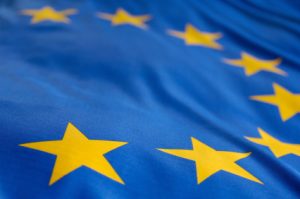- eco welcomes the focus on digital sovereignty
- Artificial intelligence: More financial resources and courage for innovation
- Digital education, digital infrastructures, IT security and data protection are in urgent need of reform
- For greater digitalisation in Europe, eco calls for a roundtable comprised of industry representatives
Berlin, 01.07.2020– Today marks the start of the German EU Council Presidency. The Association of the Internet Industry welcomes the fact that the strengthening of digital sovereignty is to be a focal point of the Presidency. “The EU must develop a consistent strategy for securing digital sovereignty in Europe on the basis of efficient digital infrastructures,” says eco Chair of the Board Oliver Süme. “As such, cloud networks such as GAIA-X should most definitely be further developed and strengthened.”
This is also a call to the German EU Council Presidency that eco makes in a 6-point catalogue of requirements for a comprehensive digitalisation of Europe. “Digitalisation and the Internet industry are important drivers for Europe’s entire value creation – Germany should always keep this firmly in mind during its EU Council Presidency,” Süme continues. “We should by all means take the opportunity now to set the course for a sustainably digitalised future, so that not only the economy but also our social sphere can benefit more from the opportunities offered by technology.”
In order for Europe to recover from the impact of the Corona crisis in the long term, eco also appeals to politicians to initiate fundamental reforms in the areas of digital education, digital infrastructures, IT security and data protection. In addition, the current virtual internal borders within the EU must be dismantled, digital EU support programmes must be expanded, and a functioning level playing field for start-ups and SMEs needs to be created.
eco is also holding out hope for more funding for EU framework programmes for the promotion of digitalisation throughout Europe. Aside from the fields of mobility, industry, health, digital education and climate protection, the focus should also be on artificial intelligence. “Up until now, there has been a distinct lack of activity in the field of artificial intelligence,” Süme observes. “Germany must not be too diffident here and must display the courage to be visionary.”
In order to tackle existing challenges – for example in the planned regulation of AI – eco calls for a pan-European Digitalisation Roundtable comprised of national representatives of the industry.



